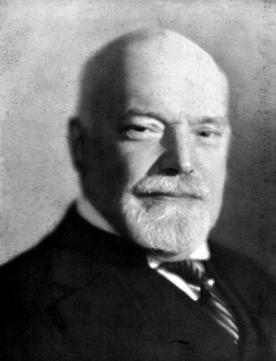Paul-Emile Janson
 | ||||||||||||||
| Born | 1872-05-30 Brussels, Belgium | |||||||||||||
| Died | 3 March 1944 (Age 71) 1), Buchenwald concentration camp, Germany | |||||||||||||
| Nationality | Belgian | |||||||||||||
| Alma mater | Free University of Brussels | |||||||||||||
| Party | Liberal Party | |||||||||||||
Belgian liberal politician and prime minister.
| ||||||||||||||
Paul-Émile (Paul Emil) Janson was a francophone Belgian liberal politician and Prime Minister (1937–1938). During the German occupation, he was arrested as a political prisoner and died in a German concentration camp in 1944.
Biography
Born in Brussels, Janson was the son of liberal statesman Paul Janson (died 1913).[1] He studied law at the Free University of Brussels (now split into the Université Libre de Bruxelles and the Vrije Universiteit Brussel), practised as a lawyer, and also taught at the university.
Paul-Emile Janson belonged to a political family. He was the son of the progressive liberal Paul Janson, the brother of Marie Janson, the first female senator, and the uncle of Paul-Henri Spaak, who was several times Prime Minister and Minister of Foreign Affairs.
Political career
He obtained his doctorate in law and became a professional lawyer. In 1921 he was made an honorary doctor at the University of Lille. During the First World War he was one of the leading figures of the CNSA, the National Aid and Nutrition Committee. The CNSA acted as the network by which the aid brought in by the international Commission for Relief in Belgium (CRB) could be distributed within Belgium itself. In 1917 he was also an employee of the head of the US food supply and later US President Herbert C. Hoover.
From 1914 to 1935 he was a member of the Chamber of Representatives for the Liberal Party. He then served as senator in the Senate from 1935 to 1936. As a liberal, he pursued an independent course that was not appreciated by his party. His attitude towards the school issue and the Flemish question was particularly blamed on him by French-speaking liberals. By making a few concessions to the Flemish, Janson thought he could strengthen Belgian unity.[2]
He had a considerable career as a member of the Belgian government. From February to September 1920 he was Minister of Defense, signing a military agreement with France. He was a delegate to the League of Nations from 1926 to 1929. He was then Minister of Justice from November 1927 to June 1931 and from October 1932 to November 1934. In this position he opposed full amnesty for Flemish activists (who had collaborated with the Germans) in 1928 and in March 1930 submitted to the Chamber the bill regulating the use of language in court cases. From November 1937 to May 1938, he headed a government of Liberals, Catholics and Socialists as Prime Minister. During his premiership, two cultural councils and the Royal Flemish Academy for Science, Letters and Fine Arts of Belgium were established. He also promised a language law for the army, which was only approved under his successor and nephew Paul-Henri Spaak. After his premiership, he was Minister of Foreign Affairs from January to February 1939, from April to September 1939, and from January to August 1940, and Minister without portfolio from September 1939 to January 1940. In 1931 he was appointed Minister of State.
At the outbreak of the Second World War, he went with the government to the South of France. However, he refused to flee further to London and was left with seven other ministers on the mainland. All eight tendered their resignation to Prime Minister Pierlot on August 28, 1940. They were considered permanently fired by the government, despite their later attempts to re-enter the government.
In 1943, southern France (the so-called 'zone libre') was occupied by the Germans and Janson was arrested in Nice. He was deported to Buchenwald concentration camp, where he died on March 3, 1944.
Honours
- Minister of state, by Royal Decree.
- Commander in the Order of Leopold.[3]
References
- ↑ Bulletin de la Classe des lettres et des sciences morales 1973 "Paul Janson ne connaissait pas le flamand, ce qui, disait-il, lui causait du regret"
- ↑ https://web.archive.org/web/20181106004723/http://theater.ua.ac.be/nevb/html/Janson,%20Paul-Emile.html
- ↑ RD 15.11.1921